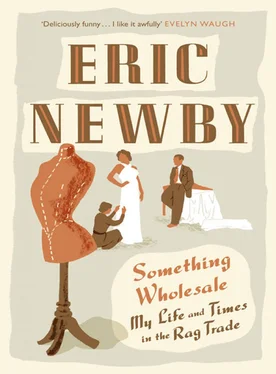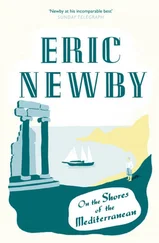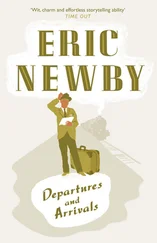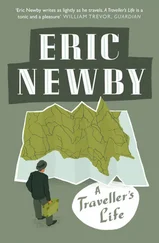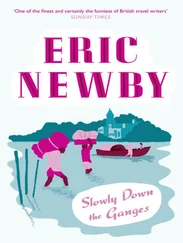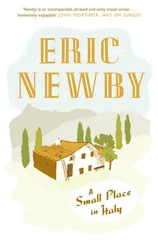Mr Lane, the senior partner, was no more. The dissolution of the partnership and his departure from the firm had been preceded by an orgy of litigation from which the Newby faction had emerged in a state of near-financial collapse.
I remember seeing Mr Lane on one occasion only; when, as a small boy, I had been on my way to Wimpole Street to have a gumboil lanced. With his great beard he had looked to me like Moses.
There the resemblance ended. For Mr Lane was a man of uncertain tastes. His exploits were always referred to in hushed whispers. In my presence words descriptive of practices of which, at the age of seven, I had not the slightest inkling, were spelled out laboriously by my parents in order to render them doubly unintelligible.
As the years passed my father and Mr Lane became very distant indeed. Both were sportsmen – but of a different kind. My father took his exercise in the open air.
My father was obsessed by rowing. When he was forty-five he married one of his model girls, who was twenty-five years his junior, not an unusual thing to do in the business in which he was engaged; but instead of allowing her to gain the upper hand and run to fat, as is customary, he taught her to row and reconstructed her into one of the most stylish oarswomen on the River Thames.
The best man, who was subsequently to become my Godfather, viewed the impending marriage with misgiving. He was himself a dedicated rowing machine who had won the Diamond Sculls at Henley and the Olympics at Stockholm. He and my father were owners of a double-sculling racing shell which, when they were properly bedded into it, was one of the fastest things on the river between Putney and Mortlake.
It was not the union itself the best man objected to. He himself had married the previous year, probably because he felt that a rowing man, like an ocean-going submarine, needed the equivalent of a depot ship to return to. It was the implied threat to their partnership in the double-sculler that worried him. His fears were groundless.
The wedding reception was held at Pagani’s, a now long-defunct restaurant whose knives and forks survived until recently in a public house in Great Portland Street, W.1, still the great throbbing heart of the dress trade. Only a few guests were invited. My father lacked the necessary courage to inform Mr Lane that he was depriving the business of its best model girl; and in retrospect the wedding day can be regarded as the beginning of what modern historians refer to as A Time of Troubles. As nothing else could, the ceremony underlined the disparity of interest that separated Mr Lane from my father.
As soon as the cake was cut, my Godfather suggested a workout in the double-sculler.
‘The train isn’t for hours yet,’ he remarked. The honeymoon was to be spent at the Lotti in Paris, where the senior partner thought my father was going in order to buy models from the Autumn collections.
‘There’s plenty of time to get down to Hammersmith. It’s just coming on to high water.’
‘We can take a cab,’ he added, improvising recklessly to suit the occasion. And they did. ‘We had a jolly good blow,’ was how my father described it when he returned to his bachelor chambers at Queen’s Club, long after the departure of the boat train, to find his bride in tears, supported by her best friend, who had herself made the mistake of marrying the best man and could offer little but cold comfort.
In the following ten years my mother devoted herself to raising me; enjoying herself with my father after office hours and getting on with her rowing. She had abundant opportunity to get on with her rowing.
In the evenings on week days in the Summer, when he was not travelling with the Autumn collection, my father used to row in eights; on Sunday mornings he used to scull ten miles. This Sunday morning ritual was a great trial to everyone as he used to return to the house, which he had taken at Hammersmith so as to be near the river, at half past two in the afternoon, roaring for hot roast beef and Yorkshire pudding. Because of the timing we rarely had servants; even in the Twenties only the most feudal-minded domestics would wait until mid-afternoon to serve lunch.
This unseasonable food despatched, he used to order his motor, a modest open Citroen (he had a great dislike for ostentation) to be brought round to the door where the chauffeur loaded it with baskets containing ‘the tea’. Then, together with my mother, who by this time was in a state of nervous prostration, we would set off for Richmond.
Even this short journey of five miles or so was memorable. My father was a back-seat driver in excelsis; at the slightest real or imaginary provocation he used to stand up in the open machine and deliver broadsides of vituperation at any other road user who endeavoured either to pass him or, if a pedestrian, simply to cross the road.
He himself had driven only on one memorable occasion. On that afternoon, returning from what he always referred to in retrospect as ‘my trial spin’ he had placed his foot inadvertently on the accelerator instead of the brake when about to enter the garage and had destroyed the façade.
In the Twenties Richmond still preserved some of the idyllic atmosphere of an earlier, more leisured age, and on a warm summer afternoon the Thames flowing quietly at the foot of the hill had something of the quality of a painting by Claude Lorraine, an illusion that was heightened by the misty blueness of the shadows among the trees and the grotto-like entrances to the boathouses of the mansions whose gardens ran down to the river, which were overgrown with vegetation, dim, mysterious and cool.
My father’s private boat was exactly what you would have expected him to own if he hadn’t been in the wholesale business. It was a really big double-sculling skiff built of mahogany and beautifully maintained. In 1926, when I first remember it, it was already fifty years old and I was still using it in 1959 when an unusually oafish, so-called waterman broke its back putting it in the water; by which time it was over eighty years old. Now for the first time in memory our family is without a river boat.
It had fixed rowlocks and fixed seats, each with a perforated felt pad for the scullers to sit on. The sculls were the original set made when the boat was built and were the most perfect I have ever handled. The craft was equipped with a boathook, what is called in river parlance a hitcher – actually a paddle-cum-hitcher with a long handle, which was very useful for getting in and out of locks – and a mast and a sail which was never used. The only times we used the mast were on the rare occasions when we towed the boat, which my father and I sometimes did, employing a sort of double harness of webbing. But even in the Twenties the towing path along the bank of the river had ceased to be used for its proper function; horses were no longer employed to tow barges, vegetation had sprung up and our efforts at towing usually ended in our becoming caught up in a blackberry bush. Why we should want to tow the boat at all was never clear to me. My father said it made a change and my mother, who used to steer, took the blame when anything went wrong.
The internal appointments were sumptuous. Up in the bows there was a long, fitted cushion of dark-blue plush with buttons on it, on which one could lounge at full length. The seat on which my mother sat while steering had a plaited cane back like the body of an Hispano-Suiza motor car; aft there was another long cushion. The carpets were of fine quality and matched the cushions. The boat was varnished and was the colour of fine old furniture. It was lined out with real gold leaf and beneath the rowlocks inboard there were black and gold transfers of sphinxes’ heads. On the bow were my father’s initials. Everything had its place; the picnic baskets were specially made to fit the boat and there were mahogany table tops that fitted across the gunwales, with holes in them for plates and glasses so that the contents would not spill ‘in a heavy sea’. If any china got broken replacements had to be specially made – a process that took months, even years, as the holes were of an unusual size. There were hidden lockers and drawers for such things as loose change and tickets for going through locks; there was even a wicker holster affair, similar to the things mounted policemen keep their truncheons in, intended to hold a parasol – my mother kept an umbrella in it. Altogether the skiff could hold five people comfortably for an afternoon. It was also a camping boat. Iron hoops fitted into brass sockets in the thwarts to form a skeleton frame over which fitted a green tarpaulin cover. By day this cover was brailed up, but at night or during bad weather it could be let down to form a tent over the whole boat. This produced a sort of half-light which turned the occupants a curious shade of green. The same kind of cover is still fitted to punts on the Thames. In spite of their colour, or perhaps because of it, punt covers have the property of making young Englishmen amorous which, under normal circumstances they seldom are, except in liquor at three o’clock in the morning.
Читать дальше
